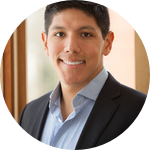Project Results
Police scholars document that although there is fragmentation of the so‐called “monolithic” police culture, historically consistent features of the occupational culture of police exist. By drawing on ethnographic observations in three U.S. police departments, I describe how one consistent feature of police culture—the preoccupation with danger and potential death—is maintained by the commemoration of officers killed in the line of duty. Through the use of commemorative cultural artifacts, officers and departments construct an organizational memory that locally reflects and reifies the salience of danger and potential death in policing. Furthermore, commemoration of fallen officers is not restricted to a department's own; the dead of other departments are commemorated by distant police organizations and their officers, maintaining broad, occupational assumptions of dangerous and deadly police work that transcend a single department and its localized organizational memory. Implications for the study of police culture, inequalities in policing, and police reform are considered.
About This Project
To address the issue of urban gun violence, police have adopted a new strategy, called "community-oriented policing". However, we know little about how officers experience the day-to-day of community-policing, or how they deal with the trauma of seeing the fallout of urban violence. Using interviews and field work, I hope to better understand the lived experience of those tasked with reducing violence and reconnecting with the community.Ask the Scientists
Join The DiscussionWhat is the context of this research?
Despite long-term decreases in violent crime in the U.S., gun violence remains a pressing problem. According to the FBI, a gun murder occurs about once every hour of every day; 8775 times a year in the U.S. in 2010. To address these issues, police department have evolved, and many are engaging in what is called "community-oriented policing".
As opposed to traditional "deterrence" policing that uses mass arrests and mandatory minimums, community policing focuses on re-building trust between police and community residents through cooperative relationships. In particular, these efforts concentrate in communities of color that have long been at odds with law enforcement.
What is the significance of this project?
In light of the ever-present concerns around violent communities, understanding the lived experience of the officers tasked with reconnecting with long-estranged and often angry communities is of dire importance. However, to date little has been done to document the way that the officers tasked with this strategy experience its implementation, how it affects their relationship with the communities they police, or how officers cope with the violence and death they encounter while in these communities. This project hopes to be the first step in understanding the experience of modern police tasked with building trust in high-violence areas.
What are the goals of the project?
1. Interviews with 40 law enforcement officers, ranging in rank from patrol officers to top police leadership.
2. Field observations at police Compstat meetings, where city crime trends are discussed, and strategies are constructed for implementation at street-level.
3. Field observations with officers in high-violence areas.
With these methods, I hope address the following questions:
[1] How have policing tactics and policies changed in New Haven since the 1980s ?
[2] ow do police feel about the strategies they are tasked with carrying out on city streets?
[3] How do police perceive of neighborhood feelings towards them, and how do those feelings affect how they go about their duties as police?
[4] How do officers experience the violence they often come into contact with while policing?
Budget
Funding will allow for transcription of interviews performed with law enforcement, as well as for purchase of recording and coding hardware and software.
Meet the Team
Team Bio
I began my PhD in 2012, and the ride so far has been wilder than I could have ever imagined. Since starting my PhD, I've ridden a police segway, worn a Kevlar vest in Chicago, and worked with over a dozen police departments across the country. In that time I've gotten to know some men and women in uniform, and through them the work they do. Being a cop isn't easy, in practice or in consequence. With tensions between the public and law enforcement as high as they are now, I want to help people on both sides of the thin blue line better understand how law enforcement policy, racial tensions, and organizational pressures play out in the real world, for police and the communities they patrol.Project Backers
- 32Backers
- 142%Funded
- $2,135Total Donations
- $66.72Average Donation
